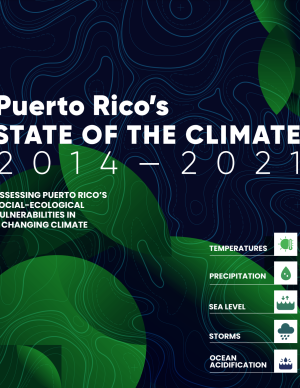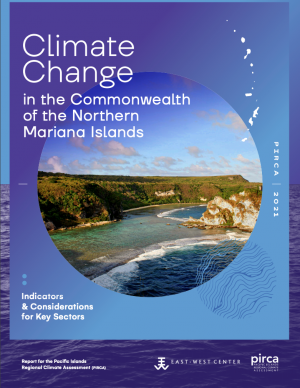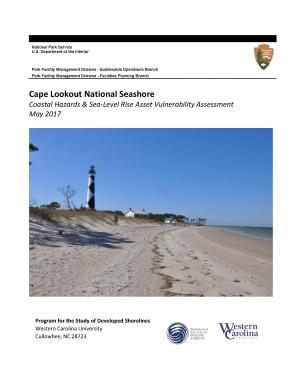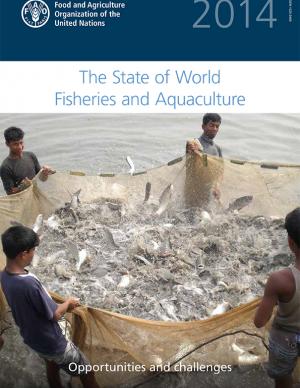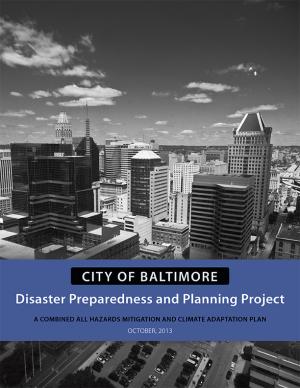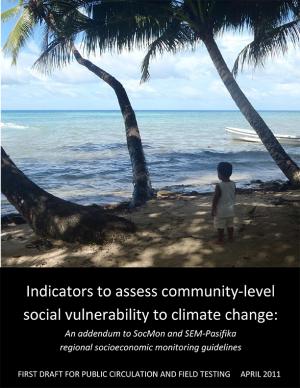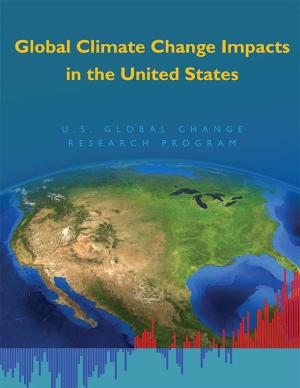Access a range of climate-related reports issued by government agencies and scientific organizations. Browse the reports listed below, or filter by scope, content, or focus in the boxes above. To expand your results, click the Clear Filters link.
Published by the Puerto Rico Climate Change Council, this report presents the social and ecological vulnerabilities amid changing climate conditions in Puerto Rico from 2014-2021. Each of the four working groups provide an assessment of:
- Geophysical and Chemical Scientific Knowledge
- Ecology and Biodiversity
- Society and Economy
- Communications and Outreach
The Working Group II contribution to the IPCC Sixth Assessment Report assesses the impacts of climate change, looking at ecosystems, biodiversity, and human communities at global and regional levels. It also reviews vulnerabilities and the capacities and limits of the natural world and human societies to adapt to climate change.
This is the FY22 edition of the U.S. Gllobal Change Research Program's annual report to Congress mandated by the the Global Change Research Act. The report provides an overview of the Program’s progress in delivering on its strategic goals as well as a summary of agency expenditures under USGCRP’s budget crosscut.
Hotter weather, stronger typhoons, coral reef death, and physical and mental health risks are among the major challenges detailed in this report on climate change in the Commonwealth of the Northern Mariana Islands (CNMI). Threatened resources include high-value coastal infrastructure and the millions of dollars that ocean ecosystems add to the CNMI economy annually. This report provides guidance for decision makers seeking to better understand the implications of climate variability and change for CNMI and its communities and identifies the additional information and research needed to support responses that enhance resilience and help CNMI to withstand the changes to come.
The protocol developed and used in this report is unique in that it is an asset-level assessment of the vulnerability of infrastructure to multiple coastal hazards and climate change factors (e.g., erosion, flooding, storm surge, sea-level rise, and historical flooding) over a 35-year planning horizon (2050). The protocol was applied to all buildings and roads in Cape Lookout National Seashore; the results are summarized in the report.
The National Climate Assessment assesses the science of climate change and its impacts across the United States, now and throughout this century. It documents climate change-related impacts and responses for various sectors and regions, with the goal of better informing public and private decision making at all levels.
The assessment draws from a large body of scientific peer-reviewed research, technical input reports, and other publicly available sources; all sources meet the standards of the Information Quality Act. The report was extensively reviewed by the public and experts, including a panel of the National Academy of Sciences, the 13 federal agencies of the U.S. Global Change Research Program, and the Federal Committee on Environment, Natural Resources, and Sustainability.
This publication, known by the acronym SOFIA, is released every two years to provide policymakers and civil society with a global view of fisheries and aquaculture and associated policy issues. The 2014 report includes a special study of initial assessments of vulnerabilities to climate change in fisheries and aquaculture. The full archive is available online.
The Intergovernmental Panel on Climate Change (IPCC) Working Group II's contribution to the Fifth Assessment Report (AR5) relates to climate impacts, adaptation, and vulnerability. A Summary for Policymakers and the underlying scientific and technical assessment are also available.
In 2013, the Baltimore City Department of Planning and Office of Sustainability created the Disaster Preparedness and Planning Project (DP3) as an effort to address existing hazards while simultaneously preparing for predicted hazards due to climate change. This project develops an integrated All Hazards Mitigation Plan, floodplain mapping, and Climate Adaptation Plan program that links research, outreach, and actions to assure implementation of a comprehensive and new risk-preparedness system for addressing existing and future impacts. Integrating hazard mitigation planning, which focuses on past events, with climate adaptation planning, which focuses on what will likely happen in the future, offers a positive, win-win solution for Baltimore City.
The United States' 28 National Estuarine Research Reserves (NERR) are experiencing negative effects of human and climate-related stressors, according to this report. This is the first national-scale climate sensitivity analysis of estuaries to help coastal managers protect the health of estuaries.
The purpose of this guide—an addendum to regional socioeconomic monitoring guidelines produced by the Global Socioeconomic Monitoring Initiative for Coastal Management (SocMon) and its Pacific counterpart, SEM‐Pasifika—is to provide a minimum set of socioeconomic indicators related to climate change. The aim of these programs is to improve site management of coastal and marine areas by providing simple, user‐friendly guidelines on how to conduct a socioeconomic assessment, which helps coastal managers incorporate community views into adaptive management of marine resources.
This guide for conservationists and resource managers aims to help practitioners understand and assess the impact of climate change on species and ecosystems, including fisheries.
This report is the Second National Climate Assessment, summarizing the science and impacts of climate change on the United States. The report discusses climate-related impacts for various societal and environmental sectors and regions across the nation. It is an authoritative scientific report written in plain language, with the goal of better informing public and private decision making at all levels.

